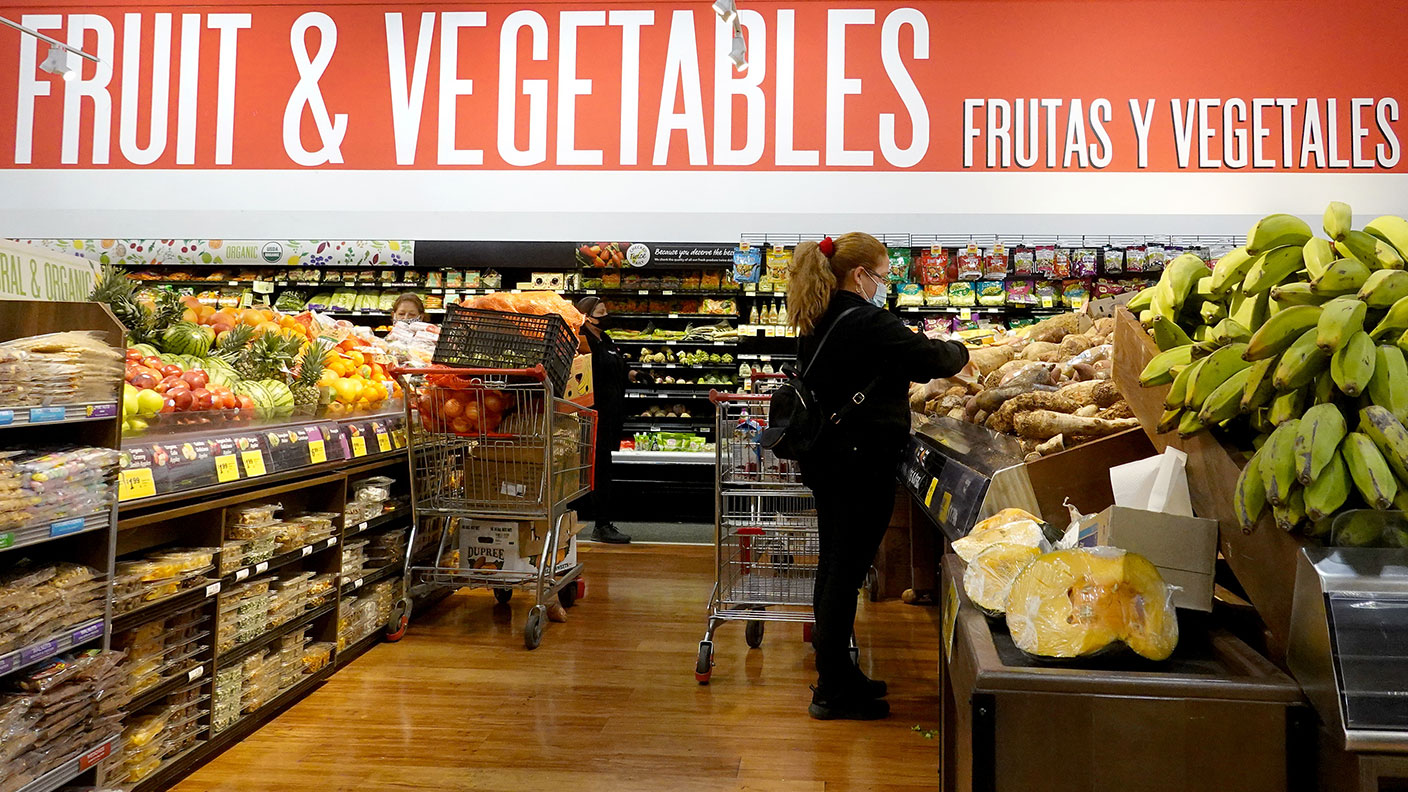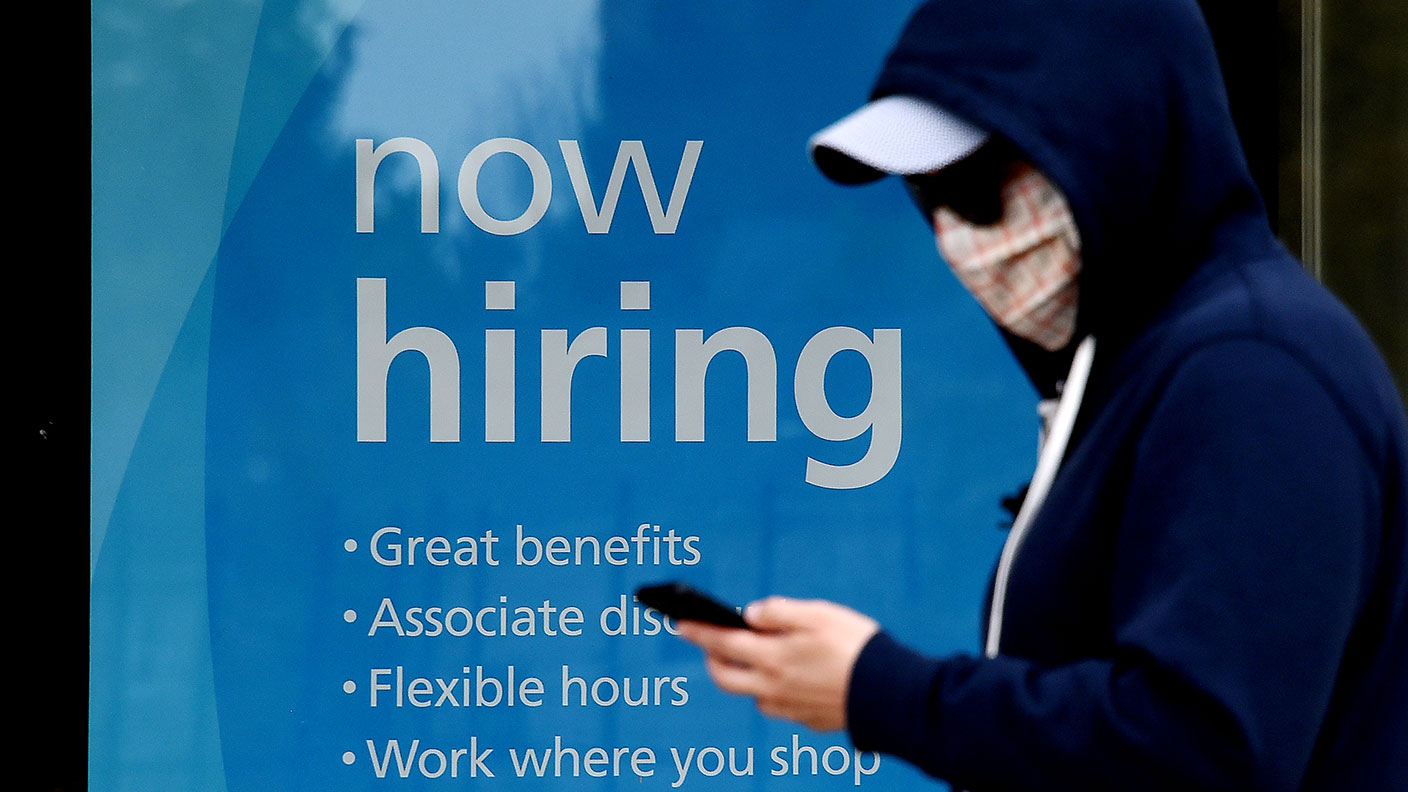What last night’s big opinion poll tells us about the pound
The poll that accurately predicted the result of the last general election is suggesting a solid result for the Conservatives this time around. John Stepek looks at what that could mean for sterling.

Get the latest financial news, insights and expert analysis from our award-winning MoneyWeek team, to help you understand what really matters when it comes to your finances.
You are now subscribed
Your newsletter sign-up was successful
Want to add more newsletters?

Twice daily
MoneyWeek
Get the latest financial news, insights and expert analysis from our award-winning MoneyWeek team, to help you understand what really matters when it comes to your finances.

Four times a week
Look After My Bills
Sign up to our free money-saving newsletter, filled with the latest news and expert advice to help you find the best tips and deals for managing your bills. Start saving today!

Just before we get started today I'm hosting a webinar with currency specialists OFX next Tuesday (3 December) around lunchtime. It's been a pretty hectic year for currency markets and I suspect that'll continue, so please do tune in.
Better yet, you can also vote on what you would like us to focus on in the discussion sign up and have your say here!
Back to this morning, and we've seen a great deal of excitement about the latest opinion poll to come out.
MoneyWeek
Subscribe to MoneyWeek today and get your first six magazine issues absolutely FREE

Sign up to Money Morning
Don't miss the latest investment and personal finances news, market analysis, plus money-saving tips with our free twice-daily newsletter
Don't miss the latest investment and personal finances news, market analysis, plus money-saving tips with our free twice-daily newsletter
It predicts that the Conservatives will win a decent majority at the general election on 12 December.
So what's the story and what does it mean for your money?
Here's why people care about the latest poll
Opinion polls are ten a penny at the best of times, and in the lead up to a general election, they are even harder to escape.
And it's fair to say that the experience of the last few years has shaken our collective faith in opinion polls. From Donald Trump to Brexit, pollsters have been slated for "getting it wrong".
This isn't entirely justified just because an outcome is deemed unlikely, doesn't mean it can't happen (you're more likely to roll 2-6 on a fair six-sided die, but that doesn't mean it's impossible to roll a 1).
But the point stands. Surprises happen. And up until last night, the polls had even been suggesting that the gap between Labour's share of the vote and that of the Conservatives, though wide, has been narrowing.
So why is everyone now making such a big deal of last night's YouGov "MRP" poll?
Long story short, this poll uses an experimental modelling technique. The reason everyone is focusing on it, is that it happened to successfully predict the unexpected hammering and the hung parliament that the Tories got in 2017. And to be fair, it was the only poll that did so.
So understandably, lots of people were keen to see what it would come out with this time. And it turns out that it's suggesting that the Tories will get a comfortable majority, and that both Labour and the Lib Dems will struggle to get anywhere.
So why is this of interest if at all in terms of your money?
Remember when markets were most worried about Brexit?
Let's make one thing clear I'm not putting any more faith in this poll than in any other I'm likely to read between now and election day.
What I'm more interested in is that the market reaction does give some idea of how investors are thinking right now.
The pound has been wobbling whenever a hung parliament looks more likely. The earlier polls this week, the ones that indicated a narrowing spread between Labour and the Tories, put a dent in sterling. Last night, it bounced strongly on the idea that the government would gain a majority.
It's easy to think: "Oh big deal". After all, everything that Jeremy Corbyn says and does indicates that a Labour-run government would be extremely hostile to business and investment.
But that's looking at things a little simplistically. Remember that up until a few short months ago, sterling was happiest when Brexit seemed least likely.
When it looked as though Brexit would never get done, or that it would be delayed indefinitely, sterling would perk up. When it looked as though a "hard" Brexit (or any Brexit at all) was on the cards, sterling would droop.
We even had some investment banks trying valiantly, if naively, to make the case that a minority Labour government would be the best bet for markets. Their idea was that Corbyn's worst instincts would be restrained by a coalition with the Lib Dems (one suspects your average international investment banker doesn't really get what the LibDems actually stand for), while Brexit would go out of the window.
So actually, this is pretty interesting. The one election outcome that comes close to guaranteeing that the UK does actually leave the European Union in one form or another, is now also deemed to be the most sterling-positive outcome.
The pound might have left its nadir behind
To be clear, you may or may not agree with this. I freely admit that I'd rather see a Conservative majority because I'd like to get some sort of Brexit started, and because I think the alternative is incredibly investor-unfriendly, particularly if any of Labour's policies become reality.
You may not agree. You may have different priorities to me. That's absolutely fine. I like democracy better than I like any one outcome or party, and I'm happy to argue the case for my views.
But I'm not making the case for a specific outcome here. I'm just trying to flag up what this says about the likely market reaction on 12 December.
If we wake up to a Conservative majority, I suspect that we can then safely say that the pound has left the depths behind. Once again, to be clear, I'm not saying that it'll rocket from there or that you should take out a massively leveraged bet on sterling.
At the end of the day, we have an awful lot of negotiation ahead of us before we leave the European Union and every twist and turn will be accompanied by currency wobbles.
But I think it'll be safe to say that the nadir for this cycle was reached back in 2016, and my colleague Dominic will be able to chalk up another victory for the Frisby Flux model (yes, I know that it sounds like a medieval ailment but that's part of the fun).
And if we wake up to a hung parliament or a Labour majority? Let's just say, I won't be so sure that the depths have not yet been plumbed.
Anyway, we'll soon find out. Stick to your plan. Invest in cheap stuff. Hold some gold. Stay calm.
Oh, and tune in for the webinar on Tuesday you can send us in questions while we're chatting so if you've any burning queries ahead of the election, let me know.
Get the latest financial news, insights and expert analysis from our award-winning MoneyWeek team, to help you understand what really matters when it comes to your finances.

-
 Should you buy an active ETF?
Should you buy an active ETF?ETFs are often mischaracterised as passive products, but they can be a convenient way to add active management to your portfolio
-
 Power up your pension before 5 April – easy ways to save before the tax year end
Power up your pension before 5 April – easy ways to save before the tax year endWith the end of the tax year looming, pension savers currently have a window to review and maximise what’s going into their retirement funds – we look at how
-
 Is the US in recession and does it matter?
Is the US in recession and does it matter?Analysis There's a heated debate over whether the US is in recession or not. But why does it matter? John Stepek explains
-
 Has the chancellor done enough to save the UK from recession?
Has the chancellor done enough to save the UK from recession?Analysis UK Chancellor Rishi Sunak announced a new package last week to ease the cost of living crisis. John Stepek explains whether the risk of a UK recession still remains.
-
 Is the UK too open to overseas takeovers?
Is the UK too open to overseas takeovers?Analysis Data shows that the UK is more open to overseas takeovers than other major markets. John Stepek asks: should investors care?
-
 How to manage your money as inflation just keeps rising
How to manage your money as inflation just keeps risingAnalysis Uk inflation is at a 30-year high – and it won't be falling any time soon. So what can you do? John Stepek explains how to manage your money to combat rising prices.
-
 Inflation is going to stay even higher for even longer
Inflation is going to stay even higher for even longerAnalysis Commodity prices – everything from energy to food – are going through the roof. And that’s not likely to end any time soon, says John Stepek. Here's what that means for how you invest.
-
 Inflation is incredibly inconvenient, as we’re all about to learn
Inflation is incredibly inconvenient, as we’re all about to learnAnalysis Inflation doesn't just eat into your wealth, it eats into your time – and can be devastating for those on the lowest incomes. And it's not going away any time soon, says John Stepek. Here's how to invest.
-
 The cost of living crisis is global – US inflation just hit another 40-year high
The cost of living crisis is global – US inflation just hit another 40-year highAnalysis With US inflation running at 7.5%, it’s clear that the cost of living crisis is not confined to the UK. John Stepek looks at the likely reaction from governments and central banks, and what it means for you.
-
 The strong US jobs report is good news for the economy, but not so much for markets
The strong US jobs report is good news for the economy, but not so much for marketsAnalysis January's US jobs report came in much stronger than anyone was expecting, with 467,000 new jobs added to the economy. But things might not be quite as rosy as they seem, says John Stepek. Here's why.